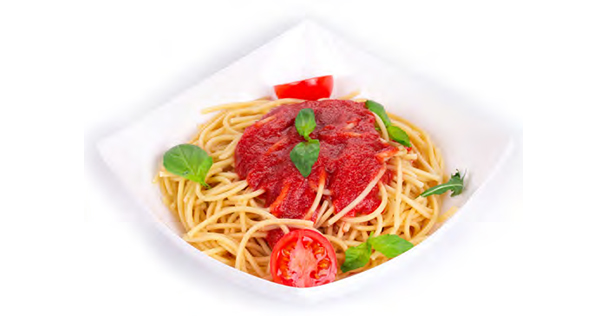A steaming plate of homemade spaghetti with tomato sauce is a good go-to for a pleasing meal. But when time is too short to simmer a home-cooked sauce, store-bought sauce comes to the rescue. A container of premade, red pasta sauce can help you whip up spaghetti – or lasagna or manicotti, for that matter – in no time. But, when you turn to convenience, are you losing out on nutrition?
Yes and no. As is the case with so many convenience foods, sodium content is a danger in prepared pasta sauces. With some pasta tomato sauces, you also want to keep an eye on fat and saturated fat.
But premade sauces have their nutritional pros, too. Some are decent sources of potassium, and vitamins A and C. In addition, pasta sauces are primarily made from cooked tomatoes and a touch of olive oil.
Tomatoes are a great source of lycopene, which is a fat-soluble compound with antioxidant properties. Lycopene is absorbed better by your body in cooked tomatoes, and the addition of oil helps enhance absorption even more. Thus, pasta sauce is an exceptionally good source of lycopene, which offers a variety of health benefits, including helping to lower the risk of prostate cancer and protection against stroke.
Keep the following in mind when choosing your Pasta topper:
1 Watch your ladle.
A serving size of pasta sauce is one-half cup. Ladling double or triple that amount onto your pasta is easy. It’s important to be aware of how much you’re consuming, to know how much fat, sodium, and other nutrients you’re getting.
2 Keep sugar in check.
All sauces contain sugar (some comes naturally in tomatoes), but some have as much as 2 1/2 teaspoons per half-cup serving, which can add up when you’re trying to keep sugar intake to a minimum.
3 Have salt sense.
Sauces with meat and cheese tend to contain more sodium, however, sodium content can still vary greatly from sauce to sauce. Be sure to compare labels to find sauces low in sodium content.
– Environmental Nutrition is the award-winning independent newsletter written by nutrition experts. For more information, visit www.environmentalnutrition.com.









